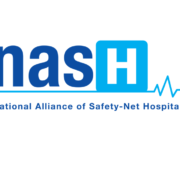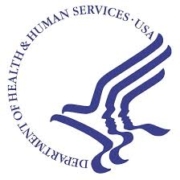The following is the latest health policy news from the federal government as of 2:30 p.m. on Monday, October 25. Some of the language used below is taken directly from government documents.
 NASH Advocacy: MedPAC and Safety-Net Hospitals
NASH Advocacy: MedPAC and Safety-Net Hospitals
On the heels of a recent meeting of the Medicare Payment Advisory Commission (MedPAC) during which commission members discussed the challenges inherent in attempting to identify safety-net hospitals, NASH has written to the agency to suggest that it consider a different approach to addressing that matter. In the letter, NASH suggests that MedPAC urge Medicare to look not at individual hospitals and what kinds of patients they serve but to focus instead on vulnerable communities and then to identify the hospitals that are caring for meaningful proportions of the residents of those communities. Go here to see NASH’s letter to MedPAC. In response to this letter, MedPAC scheduled a meeting with NASH to discuss this concept.
NASH Advocacy: Surprise Billing Regulation
Representatives Suozzi (D-NY), Wenstrup (R-OH), Ruiz (D-CA), and Bucshon (R-IL) are leading a bi-partisan congressional sign-on letter to HHS Secretary Becerra and others, urging the administration to revise the Surprise Billing, Part II interim final rule’s (IFR) implementation of the independent dispute resolution (IDR) process.
The letter states that
…we urge you to revise the IFR to align with the law as written by specifying that the certified IDR entity should not default to the median in-network rate and should instead consider all of the factors outlined in the statute without disproportionately weighting one factor.
NASH is listed among the supporters of this letter.
Action required: NASH members should contact their House members today to ask them to sign on to the Suozzi-Wenstrup-Ruiz-Bucshon letter to support the successful implementation of Congress’s surprise billing ban. The deadline for representatives to sign onto the letter is this Friday, October 29.
If you would like more information about the letter or if you need contact information for your representatives, contact Kate Finkelstein.
 Provider Relief Fund: Deadline for Submission is Tuesday, October 26
Provider Relief Fund: Deadline for Submission is Tuesday, October 26
- The Health Resources and Services Administration (HRSA) will accept applications for $25.5 billion in health care relief funds until October 26. Go here for further information.
- HRSA has modified some of the terms for applying for assistance. All applicants must complete the first step of the application process (i.e., submitting their Tax Identification Number (TIN) and associated information for Internal Revenue Service (IRS) validation no later than October 26, 2021 at 11:59 PM EST. The required IRS validation that occurs after completion of the first step may take a few days. If an applicant submits their TIN for validation by the October 26, 2021 deadline and that TIN is subsequently validated by the IRS, the applicant will have until November 3, 2021 at 11:59 PM EST to complete and submit their application.
- The Provider Relief Fund FAQ has been updated with seven modified or new questions on pages 4, 9, 10 (two questions), 37, and 58 (two questions); all are dated 10/20/2021. Entities that have received Provider Relief Funds in the past and/or intend to apply for Phase 4 funds should review these changes carefully.
The White House
- In anticipation of the FDA’s independent advisory committee meeting on October 26 and the CDC’s independent advisory committee meeting on November 2-3, the administration has unveiled a plan to ensure that if a vaccine is authorized for children ages 5-11 it is quickly distributed and made conveniently and equitably available to families across the country. Learn more from this White House fact sheet.
- The White House has posted transcripts of the October 20 and October 22 press briefings given by its COVID-19 response team and public officials.
Centers for Medicare & Medicaid Services
Health Policy News
- CMS has issued guidance to states about the statutory requirement for them to cover COVID-19-related treatment without cost-sharing in Medicaid and CHIP for many seniors, low-income adults, pregnant women, children, and people with disabilities who receive health coverage through these programs. This coverage includes care for conditions that could complicate the treatment of COVID-19 in patients who are presumed positive for the virus or have been diagnosed with COVID-19. Find a news release about the guidance here and find the guidance itself here.
- CMS has posted a new edition of MLN Connects, its online newsletter. This latest edition includes features on new/modifications of the place of service codes for telehealth, a prescriber’s guide to Medicare prescription drug opioid policies, and more. Go here to find these and other items.
- In a separate, special edition of MLN Connects, CMS presents new Medicare rates and billing information for Moderna and Johnson & Johnson booster vaccines.
- The CMS Innovation Center has published a document that shares its strategic direction for the coming years. Driving Health System Transformation – A Strategy for the CMS Innovation Center’s Second Decade reviews the lessons the agency has learned over the past ten years and lays out its objectives for the next ten. Find it here.
- CMS’s Center for Medicare and Medicaid Innovation has posted the fourth evaluation report and performance year 5 (2020) financial and quality results for its Next Generation ACO Model. Find the report by going here and scrolling down to “Performance Year 5 (2020 (XLS).”
- CMS’s “Medicare & You” handbook is now available in Chinese, Korean, and Vietnamese. Go here for the agency’s announcement and links to the new handbooks.
 Department of Health and Human Services
Department of Health and Human Services
Health Policy News
- HHS is awarding $797.5 million in American Rescue Plan funding to support survivors of domestic violence and sexual assault and their children. The funds will cover COVID-19 testing, vaccines, mobile health units, and other support for domestic violence services programs and increase support for sexual assault service providers and culturally specific services. Learn more about the new spending and how it will be distributed in this HHS news release and additional program resources.
- HHS proposes repealing two final rules: “Department of Health and Human Services Good Guidance Practices,” published in the Federal Register on December 7, 2020; and “Department of Health and Human Services Transparency and Fairness in Civil Administrative Enforcement Actions,” published in the Federal Register of January 14, 2021, maintaining that “…they create unnecessary hurdles that hinder the Department’s ability to issue guidance, bring enforcement actions, and take other appropriate actions that advance the Department’s mission.” Learn more about the rules that would be repealed and HHS’s rationale for doing so in this Federal Register notice.
Centers for Disease Control and Prevention
- The CDC has taken a series of actions to address COVID-19 booster vaccines, deciding that:
- The use of a single booster dose of the Moderna COVID-19 vaccine that may be administered at least six months after completion of the primary series to individuals 65 years of age and older; 18 through 64 years of age at high risk of severe COVID-19; and 18 through 64 years of age with frequent institutional or occupational exposure to COVID-19.
- The use of a single booster dose of the Johnson & Johnson vaccine may be administered at least two months after completion of the single-dose primary regimen to individuals 18 years of age and older.
- Each of the available COVID-19 vaccines may be use as a booster dose in eligible individuals following completion of primary vaccination with a different available COVID-19 vaccine. This is now being referred to by many as “mixing and matching.”
- A single booster dose of the Pfizer vaccine may be administered at least six months after completion of the primary series to individuals 18 through 64 years of age with frequent institutional or occupational exposure to COVID-19.
 Stakeholder Events
Stakeholder Events
CDC – Information about Recent Updates to CDC’s Recommendations for COVID-19 Boosters – October 26
On Tuesday, October 26 the CDC will provide an overview for clinicians of the most recent recommendations for administering COVID-19 booster vaccines and updates about the latest recommendations and clinical considerations for administering those boosters. Go here for further information about the webinar and how to participate.
CDC – Pediatric COVID-19 Vaccines – November 4
The CDC will hold a webinar on Thursday, November 4 to provide an overview of its recommendations and clinical considerations for administering COVID-19 vaccines to children between the ages of five and eleven years old. Go here for further information about the webinar and how to participate.
HHS – Monoclonals and More: Issues and Opportunities with Early COVID-19 Treatment Options – November 12
HHS’s Office of the Assistant Secretary for Preparedness and Response will hold a webinar on COVID-19 treatment with monoclonal antibodies on Friday, November 12 at 12:30 p.m. during which it will address some of the most current recommendations for use of monoclonal antibodies, upcoming therapies, and the challenges and opportunities that new therapies may pose in conjunction with monoclonal antibodies and other treatments (e.g., prioritization and distribution). Speakers also will highlight operational principles for a scaled strategy for use of these therapeutics in a scarce resource situation. For more information about the webinar and to register, go here.

 NASH Advocacy: MedPAC and Safety-Net Hospitals
NASH Advocacy: MedPAC and Safety-Net Hospitals Provider Relief Fund: Deadline for Submission is Tuesday, October 26
Provider Relief Fund: Deadline for Submission is Tuesday, October 26 Department of Health and Human Services
Department of Health and Human Services Stakeholder Events
Stakeholder Events